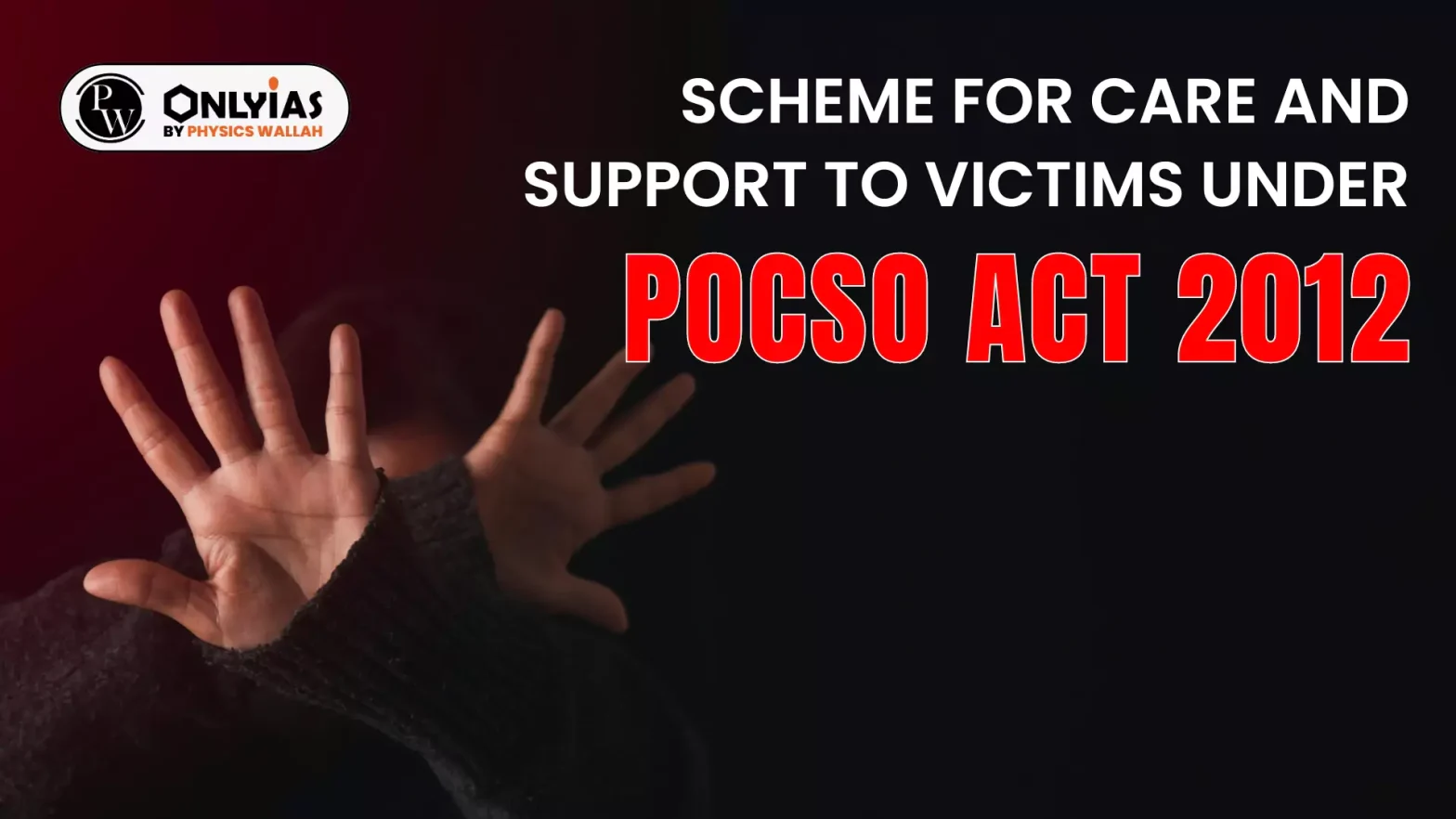Context
Recently, the Ministry of Women and Child Development announced the “Scheme for Care and Support to Victims under Section 4 & 6 of the Protection of Children from Sexual Offences (POCSO) Act, 2012.
About Scheme for Care and Support to Victims under POCSO Act 2012
- Aim: The scheme aims to provide integrated support to minor pregnant girl victims, ensuring emergency and long-term rehabilitation services.
- Expansion of Support Scheme: Initially meant for abandoned or orphaned pregnant girls, the scheme now includes all pregnant girl victims under the specified sections of the POCSO Act.
- Documentation Gaps: Despite this expansion, the scheme’s documentation has not been revised to reflect the inclusiveness, leading to significant inconsistencies and oversights.
Enroll now for UPSC Online Course
Challenges and Issues associated with the Scheme for Care and Support to Victims under POCSO Act
- Nomenclature and Scope: The scheme’s name does not reflect its intent, causing confusion as it applies to victims of any gender under Sections 4 and 6 of the POCSO Act.
- The Scheme for Care and Support to Victims under POCSO Act acknowledges that many pregnant girls are between 13-18 years, highlighting the need for proactive government measures in providing sexual and reproductive health (SRH) information.
- Limitations of the Scheme:The scheme targets minor pregnant girl victims who continue with their pregnancies by choice or due to court decisions.
- It is silent on whether benefits extend to victims who opt for a medical termination of pregnancy (MTP) or have a miscarriage.
- Unclear provisions for victims who turn 18 during the course of the case or whose circumstances change, potentially up to 23 years.
- Legal and Procedural Conflicts: The scheme misinterprets Section 27 of the POCSO Act, related to medical examinations, and suggests inappropriate Child Welfare Committee’s consents.
- Delays in MTPs due to unnecessary stipulations involving district magistrates and medical officers contradict the MTP Act’s requirements for timely interventions.
- The scheme’s references to MTP are sparse and randomly placed, lacking comprehensive guidance on handling pregnancy discontinuation.
- Implementation Challenges:
- Categorization as Children in Need of Care and Protection (CNCP): Child in Need of Care and Protection (CNCP) Classification Issues
- Victims under the POCSO Act do not automatically qualify as CNCP, but the scheme mandates CNCP classification to avail benefits.
- This requirement contradicts the POCSO Rules and Juvenile Justice (Care and Protection of Children) Act, 2015, leading to unnecessary legal procedures.
- Clarification Needed on Care Entitlements: The scheme needs to clarify if entitlements for institutional care also apply to non-institutional care, where girls live with their families.
-
- The process for young mothers to surrender their babies under the scheme conflicts with Adoption Regulations, potentially leading to prolonged institutionalisation of infants.
- Financial Challenges: India’s high rates of child marriages and teenage pregnancies imply significant financial burdens for the scheme.
-
- Each eligible girl would receive an initial payment of ₹6,000 and a monthly payment of ₹4,000 until age 21 (extendable to 23), resulting in substantial financial outlays.
- For example, in a southern district, 1,448 girls below 18 gave birth between January 2021 and October 2023. The hypothetical financial outlay for these cases would be ₹49,52,16,000.
Way Forward
Ensuring Effective Implementation of the Scheme for Care and Support to Victims under POCSO Act: The scheme, in its current form, is riddled with inconsistencies and lacks alignment with existing laws, rules, and guidelines.
- To avoid confusion and ensure effective implementation, the Ministry of Women and Child Development must rectify the scheme’s provisions.
Enroll now for UPSC Online Classes
Conclusion
Addressing these issues and ensuring clear, comprehensive guidelines are essential for the scheme to fulfil its intended purpose and effectively support vulnerable victims.
![]() 20 May 2024
20 May 2024
